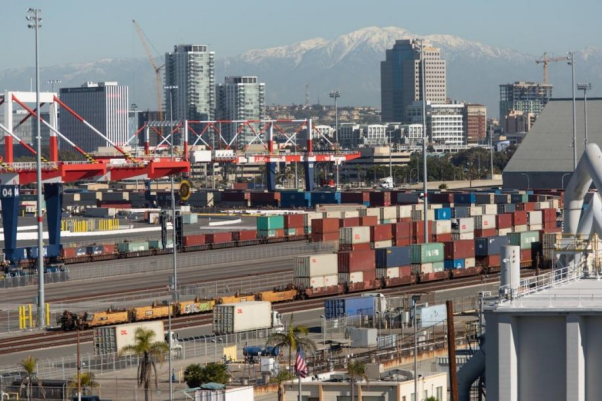South China Morning Post: Sino-US supply chain dependencies are more complicated than imagined
28 August 2023
Recently, the South China Morning Post reported on a piece of information obtained by the U.S.-China Economic and Security Review Commission (USCC), one of the U.S. government’s main advisory groups on China policy.
The sources pointed out that China and the United States are still interdependent in many areas, which complicates various moves by the United States to build alternative supply chains or try to decouple from China.

The sources pointed out that China and the United States are still interdependent in many areas, which complicates various moves by the United States to build alternative supply chains or try to decouple from China.

Sources told the panel that many industries in China are seeking to become self-reliant, but so far have failed to build enough “inner loops” in key areas such as semiconductors, electric vehicle batteries and the financial sector.
Mark Dallas, an associate professor of political science and Asian studies at Schenectady Union College in New York, said the example of Chinese telecom giants Huawei and ZTE shows that the level of dependence between China and the United States is more complicated than the outside world realizes.
China's efforts in domestic semiconductor development are struggling to pay off, and China's development in high-capacity EV batteries also requires "massive subsidies from the government," said David Bulman, assistant professor of China studies at the Johns Hopkins School of Advanced International Studies. ". With the ups and downs of Sino-US relations in recent years and the increased security scrutiny of Chinese technology companies by the United States, the Chinese government has emphasized a self-reliance line in technology development.
On May 23, the Biden administration officially launched the "Indo-Pacific Economic Framework" (IPEF), which aims to strengthen the resilience of global supply chains,
The Biden administration has also rolled out other plans, including deepening U.S.-EU trade cooperation to speed up the coordination of global trade and technology standard-setting issues, and to ensure “trustworthy and reliable” partners in these areas.
"I don't think we're ready for (decoupling)," said Willy Shih, a professor at Harvard Business School. "It wouldn't hurt to have a softer stance."
Mark Dallas, an associate professor of political science and Asian studies at Schenectady Union College in New York, said the example of Chinese telecom giants Huawei and ZTE shows that the level of dependence between China and the United States is more complicated than the outside world realizes.
China's efforts in domestic semiconductor development are struggling to pay off, and China's development in high-capacity EV batteries also requires "massive subsidies from the government," said David Bulman, assistant professor of China studies at the Johns Hopkins School of Advanced International Studies. ". With the ups and downs of Sino-US relations in recent years and the increased security scrutiny of Chinese technology companies by the United States, the Chinese government has emphasized a self-reliance line in technology development.
On May 23, the Biden administration officially launched the "Indo-Pacific Economic Framework" (IPEF), which aims to strengthen the resilience of global supply chains,
The Biden administration has also rolled out other plans, including deepening U.S.-EU trade cooperation to speed up the coordination of global trade and technology standard-setting issues, and to ensure “trustworthy and reliable” partners in these areas.
"I don't think we're ready for (decoupling)," said Willy Shih, a professor at Harvard Business School. "It wouldn't hurt to have a softer stance."


